Chicago, IL 60601
FREE CONSULTATIONS 312-462-4200
TOLL FREE 833-462-4200
Recent Blog Posts
Birth Injury Claims for Hypoxic-Ischemic Encephalopathy Resulting in Cerebral Palsy
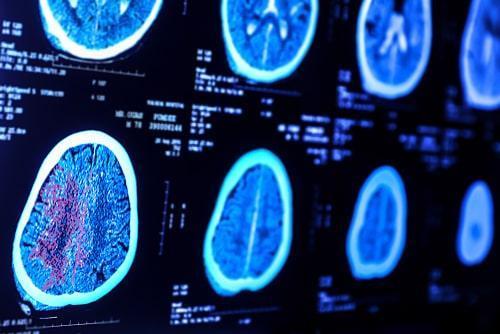 When a baby is born, the timing is crucial. Infants must transition from receiving oxygen and nutrients through the umbilical cord to breathing on their own and receiving oxygen through their lungs. If this transition is not smooth, it can result in a lack of oxygen to the brain, which is called hypoxic-ischemic encephalopathy, or HIE. When HIE occurs, it can cause serious injury to the brain. In some cases, HIE can result in a lifelong condition called cerebral palsy.
When a baby is born, the timing is crucial. Infants must transition from receiving oxygen and nutrients through the umbilical cord to breathing on their own and receiving oxygen through their lungs. If this transition is not smooth, it can result in a lack of oxygen to the brain, which is called hypoxic-ischemic encephalopathy, or HIE. When HIE occurs, it can cause serious injury to the brain. In some cases, HIE can result in a lifelong condition called cerebral palsy.
If your child has been diagnosed with cerebral palsy after suffering from HIE at birth, you may be able to file a birth injury claim against the doctor or hospital responsible for your child's care. An experienced birth injury attorney can help you understand your legal options and take the next steps.
What is Hypoxic-Ischemic Encephalopathy?
“Robot Clothes” May Offer Increased Mobility for Children with Cerebral Palsy
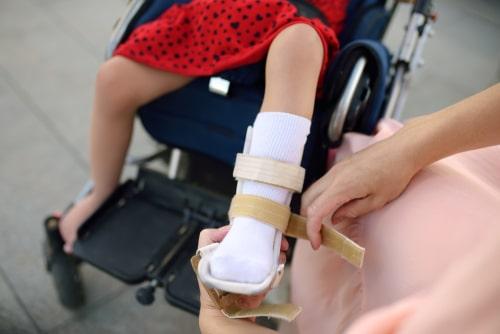 Cerebral palsy affects an individual’s ability to control his or her muscles, but the condition varies significantly with regard to severity. Some children with cerebral palsy are only mildly affected by the condition. They can play, walk, or even participate in sports. Others are nearly immobilized by the condition.
Cerebral palsy affects an individual’s ability to control his or her muscles, but the condition varies significantly with regard to severity. Some children with cerebral palsy are only mildly affected by the condition. They can play, walk, or even participate in sports. Others are nearly immobilized by the condition.
Fortunately, innovations in science, medicine, and engineering offer hope to cerebral palsy sufferers and their parents. Just recently, UC Riverside engineers received a $1.5 million grant to develop clothing that will increase mobility for children with cerebral palsy. The so-called “robot clothing” will, ideally, enable children with cerebral palsy to better control limb movement, perform physical activities like eating and grooming, and be more independent.
Innovative Robotic Clothing Will Incorporate Mechanical and Digital Technology
Anyone who has watched children interact with the world knows the critical role physical movement plays in the lives of children. Kids love to touch and explore their surroundings. They play with toys and chase each other on the playground. Children with moderate to severe cerebral palsy are limited in their physical abilities. Many struggle to crawl, walk, feed themselves, write, or hold objects. They are burdened by spasms and chaotic movements. Scientists have developed many different strategies and technologies to aid cerebral palsy sufferers, including many computer-based technologies that help children with CP learn, grow, and communicate with others.
Why Do Women Die During and After Childbirth?
 When a woman dies during pregnancy, childbirth, or in the 42 days following childbirth or the end of a pregnancy, it is considered a maternal mortality. Despite having access to some of the best healthcare in the world, American women suffer from maternal mortality at an alarmingly high rate compared to women in other wealthy, developed nations. Black American women are at a particularly high risk of falling victim to maternal mortality. Tragically, studies suggest that most of these deaths are due to preventable causes and pregnancy complications.
When a woman dies during pregnancy, childbirth, or in the 42 days following childbirth or the end of a pregnancy, it is considered a maternal mortality. Despite having access to some of the best healthcare in the world, American women suffer from maternal mortality at an alarmingly high rate compared to women in other wealthy, developed nations. Black American women are at a particularly high risk of falling victim to maternal mortality. Tragically, studies suggest that most of these deaths are due to preventable causes and pregnancy complications.
When a woman dies during pregnancy or childbirth, her family is left to deal with overwhelming grief, suffering, and guilt. If your wife, daughter, or mother died as a consequence of poor medical care, you may be eligible to pursue compensation on her behalf. To learn more about ways that women commonly suffer from maternal mortality, read on.
Can Speech Therapy Help Children with Cerebral Palsy?
 One of the most common symptoms of cerebral palsy is difficulty controlling muscles throughout the body. This can result in muscle spasticity, difficulty with mobility, and challenges with speaking, eating, and facial expressions. Many different professionals help children with cerebral palsy overcome their physical challenges and one of the most helpful of these professionals can be a speech therapist.
One of the most common symptoms of cerebral palsy is difficulty controlling muscles throughout the body. This can result in muscle spasticity, difficulty with mobility, and challenges with speaking, eating, and facial expressions. Many different professionals help children with cerebral palsy overcome their physical challenges and one of the most helpful of these professionals can be a speech therapist.
How Does Cerebral Palsy Impact Speech and Facial Movement?
Verbal communication delays are common in children with cerebral palsy - up to 75 percent, by some estimates. Limited control over face, tongue, and neck muscles can make it difficult for children with cerebral palsy to clearly express their feelings verbally. Fortunately, speech therapy proves effective for many, if not most, of these children and allows them to enjoy a higher quality of life.
Multicystic Encephalomalacia and Cerebral Palsy in Infants
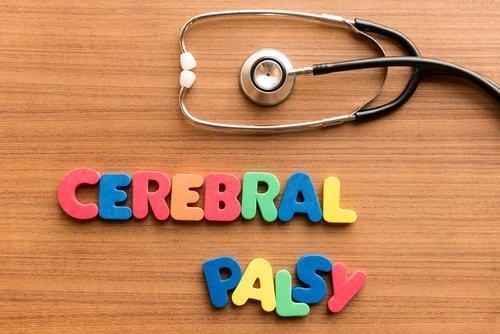 All healthy humans have an important fluid called cerebrospinal fluid (CSF) that surrounds the brain and spinal cords, protecting the crucial central nervous system. CSF helps prevent injury to these fragile parts of our body, cushioning them when they are injured by falls or impact injuries. CSF also plays an important role in transporting nutrients to the brain and taking away waste products.
All healthy humans have an important fluid called cerebrospinal fluid (CSF) that surrounds the brain and spinal cords, protecting the crucial central nervous system. CSF helps prevent injury to these fragile parts of our body, cushioning them when they are injured by falls or impact injuries. CSF also plays an important role in transporting nutrients to the brain and taking away waste products.
Certain kinds of brain damage can cause pseudocysts, or fluid-filled sacs, to present in the brain’s white matter and neocortex after serious brain injuries that cause softening or loss of brain tissue. This condition is known as cystic or multicystic encephalomalacia. Instead of normal brain tissue, CSF fills these sacs, resulting in long-term brain damage, which, among other symptoms, commonly manifests as cerebral palsy. When this happens as a result of trauma to the mother or child during childbirth and is caused by a negligent healthcare provider, the parents of the child may be able to recover compensation.
What Are Common Causes of Postpartum Maternal Infection?
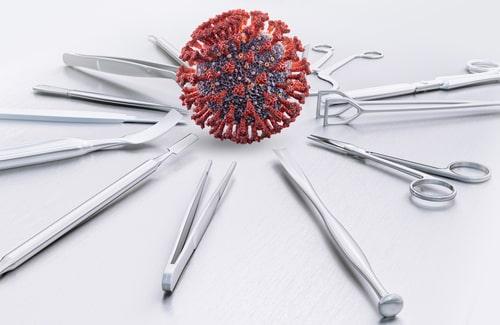 Before modern medicine, roughly a third of women died during pregnancy or childbirth. Current medical standards of care make this a number almost impossible to fathom; the vast majority of present-day childbirths go well, even when the mother and infant are facing serious complications. But when doctors, nurses, midwives, or hospitals are ill-prepared to respond to complex situations, mothers can still suffer serious injuries during and after childbirth.
Before modern medicine, roughly a third of women died during pregnancy or childbirth. Current medical standards of care make this a number almost impossible to fathom; the vast majority of present-day childbirths go well, even when the mother and infant are facing serious complications. But when doctors, nurses, midwives, or hospitals are ill-prepared to respond to complex situations, mothers can still suffer serious injuries during and after childbirth.
One of the most common causes of postpartum injuries still associated with childbirth and its aftermath are maternal infections; while these are not always avoidable, they are often a consequence of poor medical treatment during childbirth, especially during complicated deliveries and recoveries. If left undetected or improperly treated, these infections can lead to serious injuries, including maternal death. To learn more about common causes of postpartum maternal infections, read on and then contact an Illinois birth injuries lawyer.
Should My Doctor Have Prevented My Child From Inhaling Meconium?
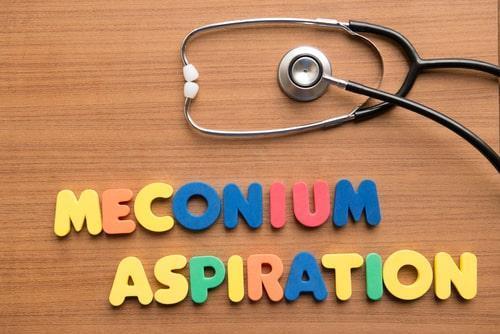 Before an infant is born, his bodily waste is sent through the umbilical cord and placenta to be processed and eliminated by the mother’s body. Once a child is born, however, his digestive tract begins functioning and the first poop a child produces is a thick tar-like substance called meconium. For first-time parents who are not expecting meconium, this can be alarming, but it is perfectly normal.
Before an infant is born, his bodily waste is sent through the umbilical cord and placenta to be processed and eliminated by the mother’s body. Once a child is born, however, his digestive tract begins functioning and the first poop a child produces is a thick tar-like substance called meconium. For first-time parents who are not expecting meconium, this can be alarming, but it is perfectly normal.
Rarely, an infant will begin pooping during labor. Meconium can be passed while a baby is still in the uterus, causing it to move around in the amniotic fluid surrounding the baby. Most of the time when this happens, the baby does not breathe in any meconium or amniotic fluid. But when meconium is inhaled, it can cause serious problems and requires urgent treatment from trained Illinois medical healthcare professionals.
Symptoms of Meconium Aspiration
My Doctor Did a Terrible Job Stitching My Perineal Tearing. Can I Sue?
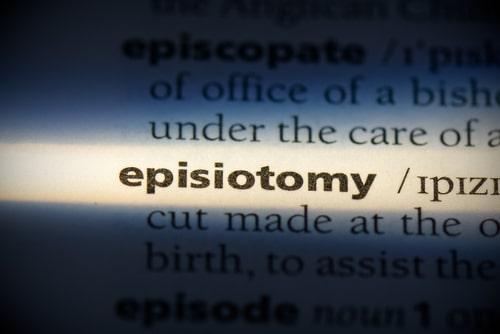 The unfortunate reality for many mothers giving birth vaginally is that tearing injuries can easily occur. The skin of the vagina is biologically prepared to thin and stretch during delivery, but certain situations can make perineal tearing unavoidable. And while perineal tears are usually fairly easy to repair, poor medical treatment can make a mother’s recovery excruciatingly painful, sometimes requiring expensive further treatment and causing irreparable harm.
The unfortunate reality for many mothers giving birth vaginally is that tearing injuries can easily occur. The skin of the vagina is biologically prepared to thin and stretch during delivery, but certain situations can make perineal tearing unavoidable. And while perineal tears are usually fairly easy to repair, poor medical treatment can make a mother’s recovery excruciatingly painful, sometimes requiring expensive further treatment and causing irreparable harm.
If your doctor committed a mistake that cause unnecessary perineal tearing, or if they improperly tried to repair perineal tearing, you may be able to take action.
What Kind of Mistakes Cause Unnecessary Perineal Tearing?
Mild to severe perineal tearing is common during delivery. Unfortunately, certain situations can worsen perineal tearing. These include:
- Improperly using forceps or vacuum suction
New Research May Help Grieving Parents Determine Cause of Multiple Miscarriages
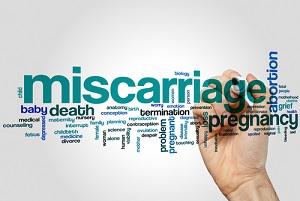 Illinois parents-to-be must navigate a large amount of complex information as they prepare to welcome their child into the world. When tragedy strikes and pregnancy ends in miscarriage, parents often feel a challenging combination of grief, confusion, and anger. There may be many questions - Why did this happen? Is anyone responsible? Sadly, parents who try to preempt unhealthy pregnancies by testing for genetic anomalies may risk inadvertently ending the pregnancy when the test itself causes a miscarriage.
Illinois parents-to-be must navigate a large amount of complex information as they prepare to welcome their child into the world. When tragedy strikes and pregnancy ends in miscarriage, parents often feel a challenging combination of grief, confusion, and anger. There may be many questions - Why did this happen? Is anyone responsible? Sadly, parents who try to preempt unhealthy pregnancies by testing for genetic anomalies may risk inadvertently ending the pregnancy when the test itself causes a miscarriage.
New Research from Yale Medicine tries to help grieving parents by looking for answers to difficult questions about miscarriages. If you have suffered from a miscarriage and are wondering whether your healthcare provider’s negligence caused or contributed to the miscarriage, call an Illinois birth injuries attorney.
Miscarriage Testing
Can Forceps Injure a Mother During Childbirth?
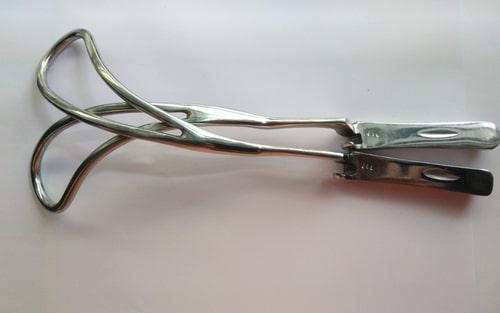 Doctors, nurses, midwives, and other childbirth medical specialists have an array of tools at their disposal to aid in ensuring babies are born safely. While the vast majority of deliveries do go smoothly, sometimes urgent intervention is needed. Delivering mothers have no choice but to put their faith in their attending doctor’s skill and knowledge.
Doctors, nurses, midwives, and other childbirth medical specialists have an array of tools at their disposal to aid in ensuring babies are born safely. While the vast majority of deliveries do go smoothly, sometimes urgent intervention is needed. Delivering mothers have no choice but to put their faith in their attending doctor’s skill and knowledge.
Tragically, not all doctors are as educated or dedicated to their patients’ well-being as they should be. And even when a mistake is just that - an accident - the results can be devastating. One kind of tool that has the potential to cause great harm to both mother and child during delivery is forceps. Forceps look like a large pair of tongs that are meant to fit around a child’s head to help guide them out of the birth canal. While forceps save lives, when used incorrectly, they can cause several types of maternal injuries.





